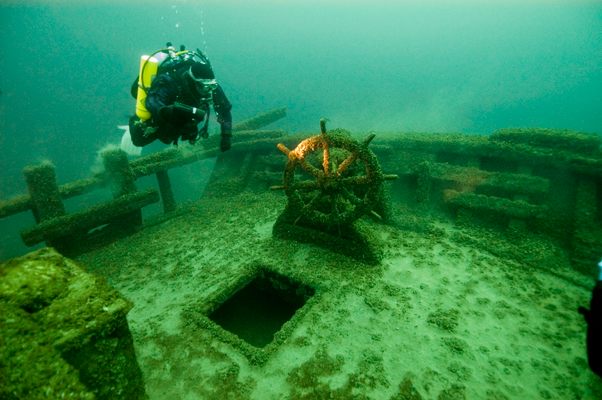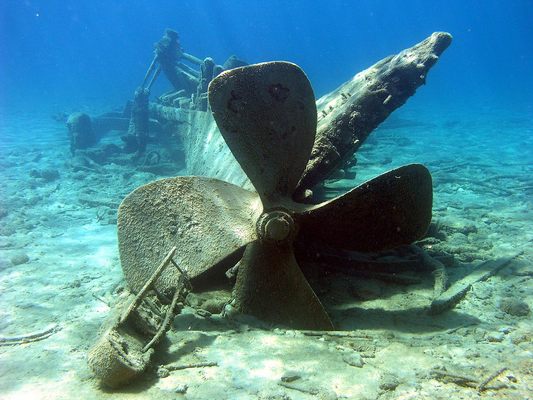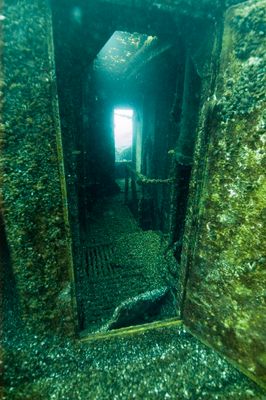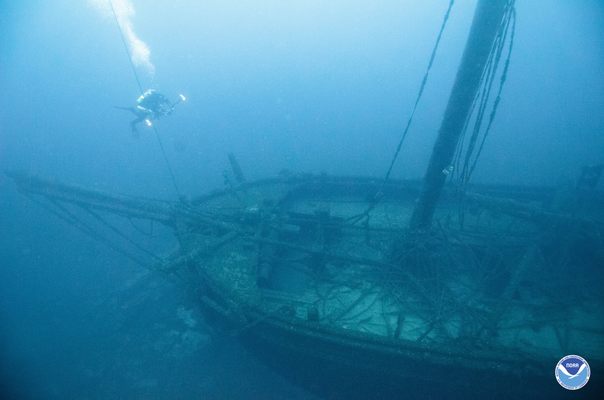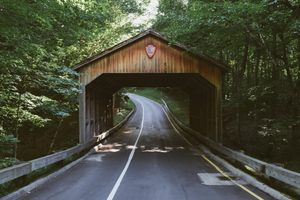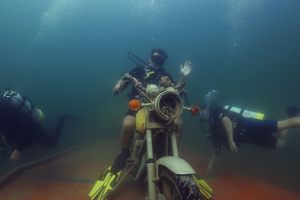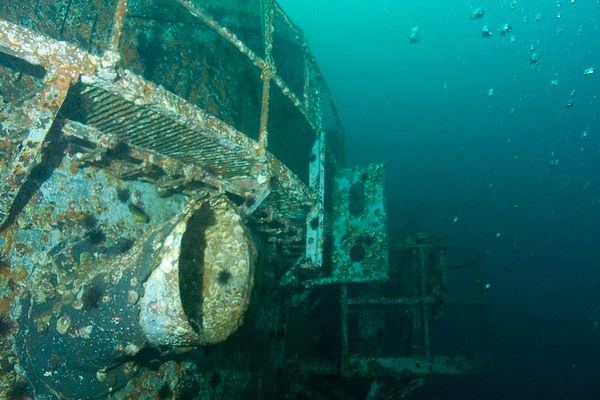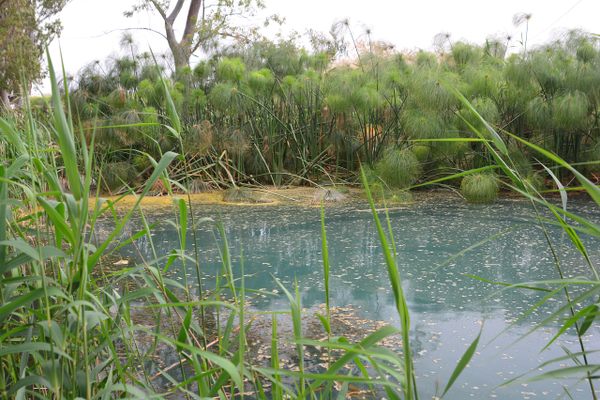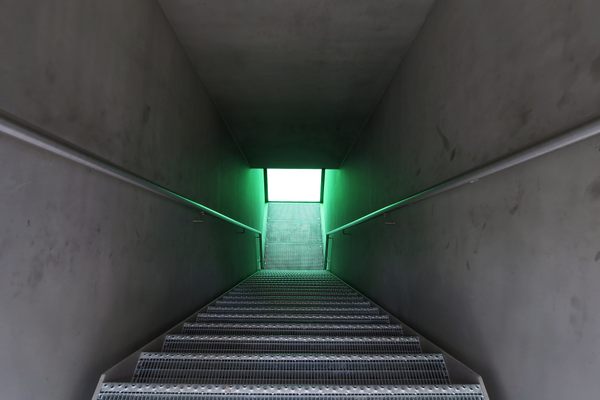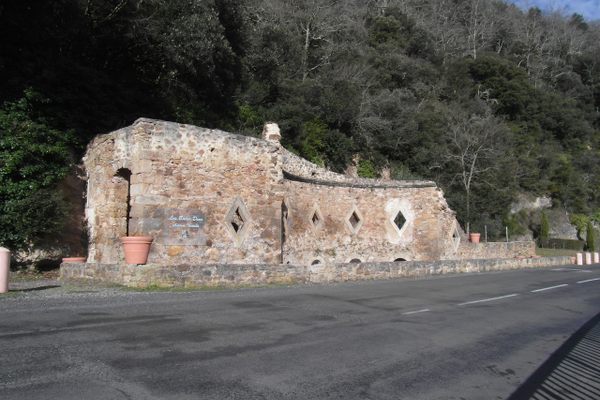About
Ever since the mid-19th century, the Thunder Bay region has been a heavily trafficked waterway, sitting as it does on shipping lanes that carry cargo between the upper and lower Great Lakes. And since well before that — as its name suggests — it has been home to capricious weather and treacherous shoals.
Various misfortunes have caused over 200 vessels to sink beneath the waves in and around Thunder Bay, nicknamed "Shipwreck Alley." Thanks to the resulting treasure trove of historic artifacts, the State of Michigan created a 290-square-mile underwater preserve in the area in 1981; this state preserve became a 448-square-mile national marine sanctuary in 2000. After being enlarged again to 4,300 square miles in 2014, it now encompasses essentially all of the waters from the shores of northeastern Michigan to the U.S./Canada border.
Almost 100 shipwrecks have been discovered and identified within Thunder Bay National Marine Sanctuary. The known wrecks range in date from 1849 to 1966 and represent a physical timeline of the development of Great Lakes maritime vessels, from wooden schooners and early steamboats to modern steel-hulled freighters. The cold, fresh water has kept this impressive historical cross-section of watercraft extraordinarily well-preserved, with many wrecks exhibiting structural and mechanical components as well as sailors’ personal effects that have remained largely unchanged since coming to rest at the bottom of Lake Huron. Unfortunately, invasive species are causing deterioration heretofore unseen in the protected site, with zebra and quagga mussel colonization hindering ongoing archaeological documentation.
Visitors to Thunder Bay National Marine Sanctuary are afforded unrestricted access to explore the shipwrecks, whether via diving or snorkeling, canoeing or kayaking through partially-submerged wrecks, or taking a glass-bottom boat tour. Artifacts collected during archaeological visits can be seen at the nearby Great Lakes Maritime Heritage Center, as well as the Jesse Besser Museum. If you don’t happen to find yourself in northeastern Michigan, 3-D models have been created for seven of the wrecks, which can be explored online in warm, dry comfort.
Related Tags
Published
July 22, 2016
Sources
- http://thunderbay.noaa.gov/welcome.html
- http://www.michiganpreserves.org/thunder.htm
- http://www.thunderbaywrecks.com/index.php
- http://sanctuaries.noaa.gov/science/condition/tbnms/
- https://en.wikipedia.org/wiki/Thunder_Bay_National_Marine_Sanctuary
- https://en.wikipedia.org/wiki/Thunder_Bay_(Michigan)
